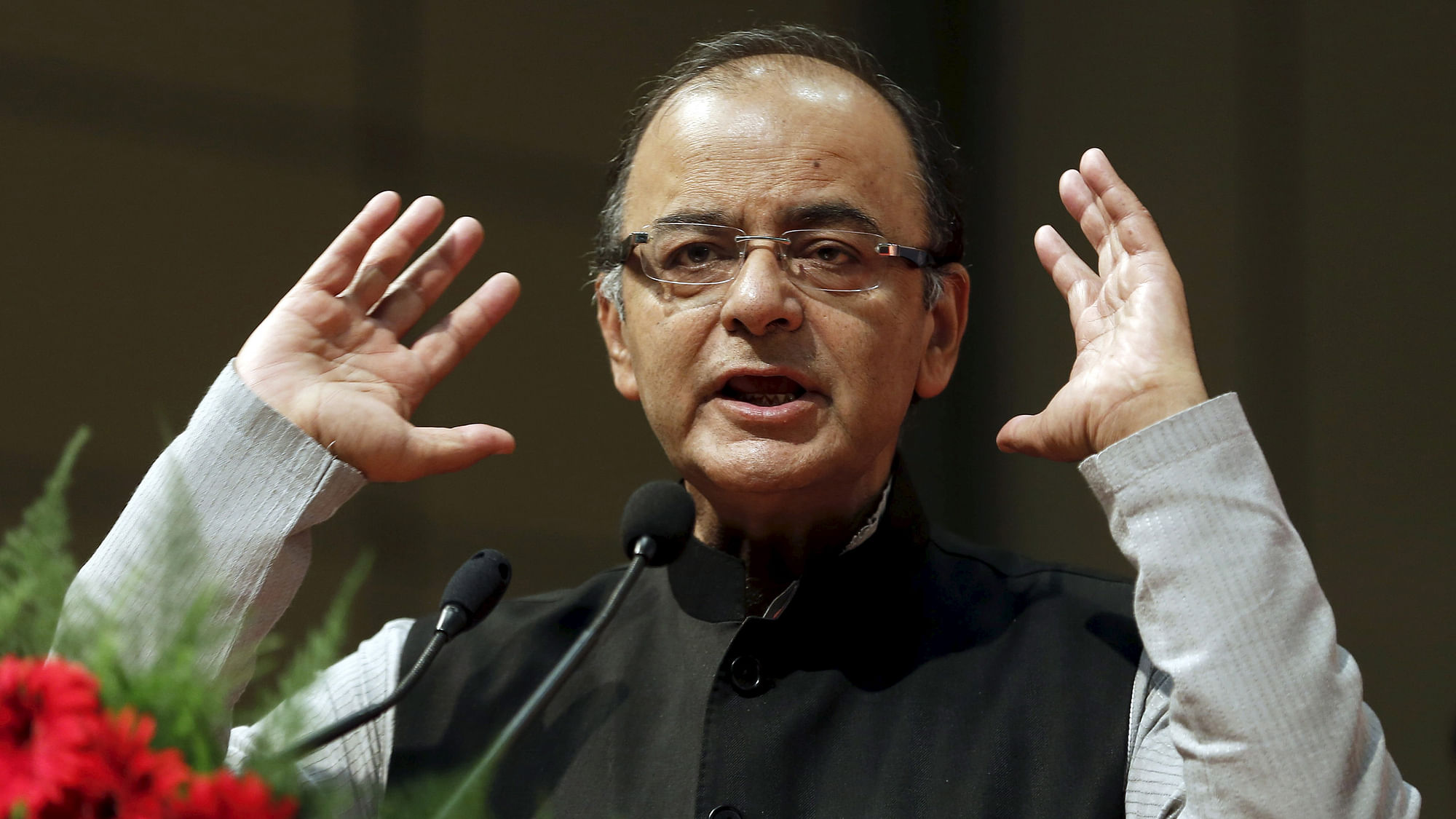Jaitley Questions Nehruvian Model, Says It Led to No Development
Attacking PV Narasimha Rao, Jaitley said the former PM acted primarily out of compulsion.

In an arbitrary attack on the Congress, Finance Minister Arun Jaitley on Saturday said that the post-Independence Nehruvian model did not lead to any development in India.
According to Times Now, he further said that former Prime Minister PV Narasimha Rao was a conservative — and acted primarily out of compulsion. In effect, the 1991 reforms, or economic liberalisation, was due to bankruptcy in India, he said.
‘Moderate Taxes, Evasions Cannot Coexist’
Amid intense speculation over the rate of Goods and Services Tax (GST), Jaitley said moderate taxes and high evasions cannot coexist.
The minister was replying to a demand made by Ashish Shelar, Mumbai BJP unit president, to bring the proposed GST rate at 17 percent. Explaining the rationale further, the minister said when more people evade taxes, it brings in an aberration in tax structures.
The proposed uniform taxation regime, GST, will integrate the country into one single market by ensuring a free flow of goods and services across the country, Jaitley said, adding that in order to enable this, we should have a uniform tax rate throughout the country.
The GST will ensure that taxation rates are moderate, which in turn will bring down the cost of doing business, thereby bringing down the cost for end-consumers.
Earlier this month, Parliament passed the much-delayed GST Bill. The peak GST rate will be finalised by the proposed GST council comprising the Union Finance Minister and his state counterparts, even as the chief economic advisor has suggested an 18 per cent peak rate.
(With PTI and Times Now inputs.)
(At The Quint, we are answerable only to our audience. Play an active role in shaping our journalism by becoming a member. Because the truth is worth it.)